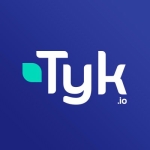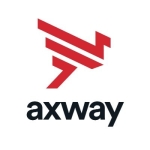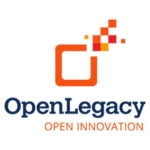What is most valuable?
I work for a major healthcare company, it's amongst the top ten Fortune 500 companies and we've been leveraging CA API Management to make our healthcare business services available on the Cloud. To make them available on the Cloud and to enable our healthcare capabilities to be consumed by different consumers in real time across a plethora of channels.
We are leveraging CA API Management - we chose it by doing a huge comparison across different competitors. CA API Management helps us to securely consume various services and also the biggest thing has been to do monetization of services. We have certain rules that have been defined where you basically say that this specific healthcare capability is of greater value and we put a dollar amount to it as to which consumers can consume how much and based on its usage and all that.
CA API Management has been the driver for our digital transformation. It's interesting these days, the entire business is heading towards a completely distributed platform where the consumers are everywhere. You have business to business consumers, you have API management consumers and you have mobile consumers. At the same time, you have data providers that are growing heavily. You have data analytics placed platforms and then companies are heading towards providing helping consumers to make analytics-driven decision. Let the data drive the decision so now you're the middleware industry around microservices is facing its own challenge on how to meet the scores upstream and downstream from these back-end services. That's where the microservices platform, CA API Management heavily helps to make sure that you provide your services on the part.
What needs improvement?
With scalability, it comes to resiliency. If you cannot scale you're not resilient. If you're not resilient your performance is worse. If your performance is worse your API and services are not available.
Fine lines of availability is one of the key criteria's in the industry - 99.99% availability. That means 6 hours downtime in a year, so can you really ensure that everything is interlinked. If we talk about software architecture, quality attributes from these are all interlinked. I would say that eventually, it comes down to your customer satisfaction from there on. So that's our number one goal.
Right now, scalability is our main goal. Maybe they're not the problems but from the standpoint of onboarding a new API on Layer 7, that's fairly simple. I see that it's an extremely user intuitive and user-friendly software. Our operational personnel who have barely have any experience could get on with it and help the enterprise register as many API's as possible from the get-go.
For how long have I used the solution?
We've been using it for the past 2.5 to 3 years. However, now we have come to a point where our scale is growing and organization is unable to keep up with the needs of the consumer so we are constantly working with CA API Management's operational personnel. They are helping us out but these are our challenges to be very honest.
What do I think about the stability of the solution?
It is very good software from the standpoint of making an API commercializable and making an API accessible. The security industry is extremely complex, to provide various security capabilities to an API that's fairly simpler. However, we are facing challenges in scaling the CA API Management software so we have seriously faced certain challenges when if your API usage goes beyond a certain limit, say 100,000 transactions per minute, I'm just throwing out a number, I can't provide you the real number but we are facing seriously challenges in scaling, in clustering the CA API Management software and then making sure that we can reliably meet our transactions as your usage grows on the Cloud.
What do I think about the scalability of the solution?
It's challenging at this point because the healthcare API marketplace is growing.
CA API Management has been chosen as the platform for the entire firm so now as the APIs are growing the API management product capability also has to grow. Some of the challenges we are facing is sometimes you have mainframe systems and these mainframe systems are incredibly slow to respond. Now your product has to be capable of keeping your response times open for that duration, so that's one challenge. The ability to scale up, we face that beyond 90,000 or 100,000 transactions, the product has this limitation and it cannot scale. We are seriously facing challenges around response time per transaction and our business demands .1 milliseconds of response time. However, we are seriously reaching up to 3 seconds for some of it. I think internally we have to make this serious call around leveraging CA API Management for certain kind of transactions. Maybe segregate the platform so there are different architecture strategies for it, different approaches for it and we can really achieve it but we need to tune it a lot better.
How are customer service and technical support?
Technical support are definitely extremely knowledgeable. However, we have faced some challenges where in our initial discussion we don't get a level 1 support. You want the guy with the most knowledge to be there right up front so it gradually takes 3 or 4 levels but the good things is our internal staff is coming up to speed on this but otherwise CA API Management have great knowledge, they built the product so they are very helpful.
Which other solutions did I evaluate?
If I'm looking for an API management vendor then I would look at the API management vendor's capability, their products capability to make their services available on the Cloud, monetization, security, availability, performance, resiliency, being flexible enough to provide different security integration mechanisms to different APIs, how flexible that software is and user intuitiveness.
My operational personnel should be able to be running from the get-go. I think these are some of the key attributes that we really look at. We did a comprehensive analysis on CA API Management followed by Apigee, followed by SOA software. We did a comprehensive analysis of balance score card by comparing the capabilities and the attributes across all these softwares on a scale of 1 to 10 and then the scorecard came in such a way that CA API Management stood out on every scale for us.
I think cost was also one of the key factors. We figure that Apigee and other software were on a higher scale from the cost standpoint, so I think that played a major role.
What other advice do I have?
The product overall on a scale of 1 to 10 - from a scalability standpoint I would give it an 8. I would certainly give 8, because although I would have loved to go 9 or 10, no product in this world can scale any needs from the get-go but the customer service and the technical support has been outstanding. They have been very helpful so at least they are helping us out. Considering CA from an holistic perspective, not just the product, their ability to meet our needs, their ability to support us, their ability to answer our calls, and answer our specific technical questions, I think I would rate them an 8.
People tend to support what they have done in the past. It's always the case. If you ask a mainframe programmer he would say mainframe is the most rock solid stable platform in this world. I would say because we have lived in CA API Management I would say absolutely you have to use CA API Management.
Jokes apart, the customer has to know the capability of API management software. I see a lot of people asking me if I decoupled services in API management. API Management software's purpose is not to do decoupled services. It's to make your services available on the Cloud. It acts as a security gateway so that your consumers can access your services. One needs to know what he's looking for. These are the fundamental characteristics of an API management software. If you compare those characteristics CA API Management leads the industry.
Disclosure: My company does not have a business relationship with this vendor other than being a customer.















